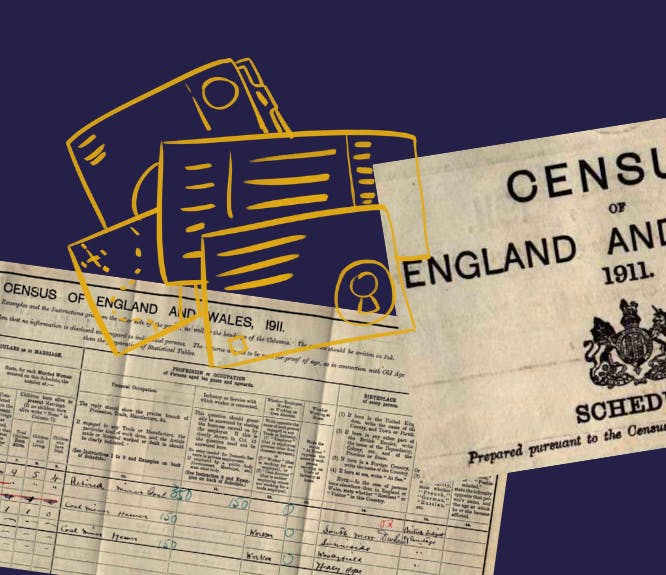These are the nation’s favourite war stories – and the real history behind them
5-6 minute read
By Daisy Goddard | October 31, 2024
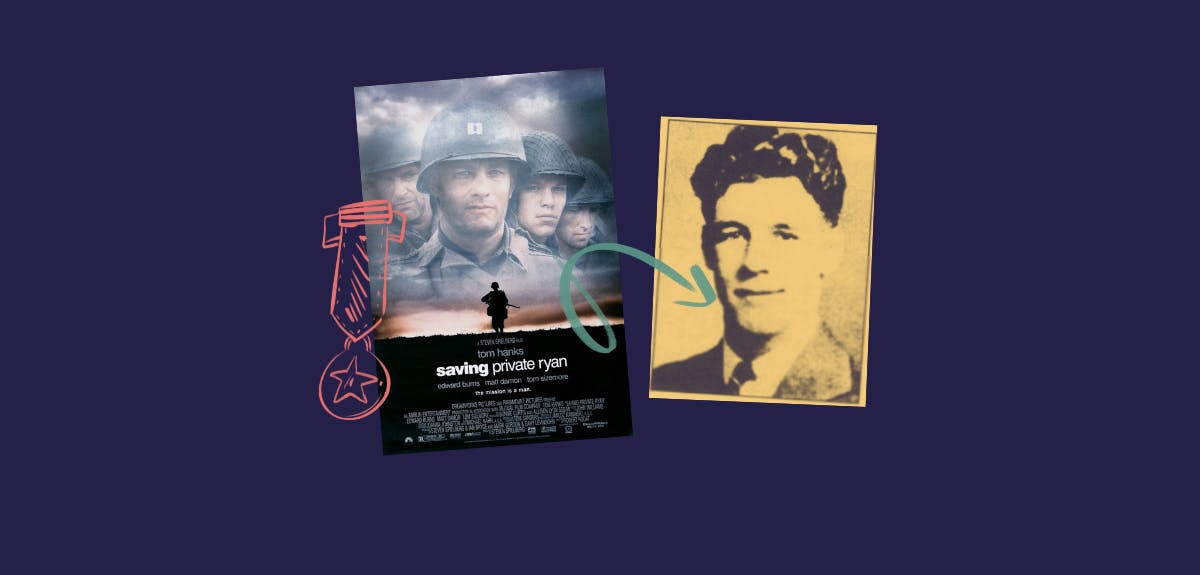
Films, TV and literature play a vital role in carrying poignant wartime stories forward through the generations. These are the stories that shaped a nation – and the real lives that inspired them.
Did you know that two-thirds of Britons haven’t researched an ancestor who served in the World Wars? We did the maths, and this means that a staggering 1.18 million wartime stories stand to be lost to future generations.
Family history provides a way to discover and preserve the experiences of our ancestors who lived through World War 1 and World War 2.
Commemorating our ancestors’ bravery shouldn’t be confined to Remembrance Day. Here at Findmypast, we’re on a mission to ensure that no story is forgotten.
With billions of records and over 85 million newspaper pages at your fingertips, it’s never been easier to discover the forgotten soldier in your family.
Stories that have shaped a nation
One way that stories are immortalised is through films, TV and literature. We turned to the British public, to uncover the films, TV shows and literature that the nation feels best depict the many different - and often complex - stories of war.
Is your favourite military tale on our list of the top ten most impactful stories?
Your favourite war films:
- Schindler’s List
- Saving Private Ryan
- Dunkirk
- The Boy in the Striped Pyjamas
- The Great Escape
- The Bridge on the River Kwai
- War Horse
- 1917
- Apocalypse Now
- Black Hawk Down
If we turn our attention to the small screen, we can discover the nation's favourite war stories as told on TV. Your top ten war-themed TV shows are as follows:
- The World at War
- Band of Brothers
- Colditz
- MASH*
- War and Peace
- The Vietnam War
- The Pacific
- Foyle's War
- World on Fire
- Our World War
We also asked the public which wartime poems mean the most to them.
Among the list of top poems are John McCrae’s In Flanders Fields, The Charge of the Light Brigade by Alfred Lord Tennyson and The Soldier by Rupert Brooke, as well as moving works by Wilfred Owen and Siegfried Sassoon.
The true story behind Schindler’s List
Steven Spielberg’s 1993 epic historical drama saw Liam Neeson portray Oskar Schindler, a German industrialist who saved over 1,000 Polish Jews from the Holocaust by employing them in his factories. The film is based on the 1982 historical novel Schindler’s Ark by Thomas Keneally.
Both the film and the novel are based on a true story. Oskar Schindler joined the Abwehr military intelligence service as a spy in 1936, and the Nazi Party in 1939. Following Hitler’s invasion of Poland in 1939, Schindler acquired a factory in Kraków.
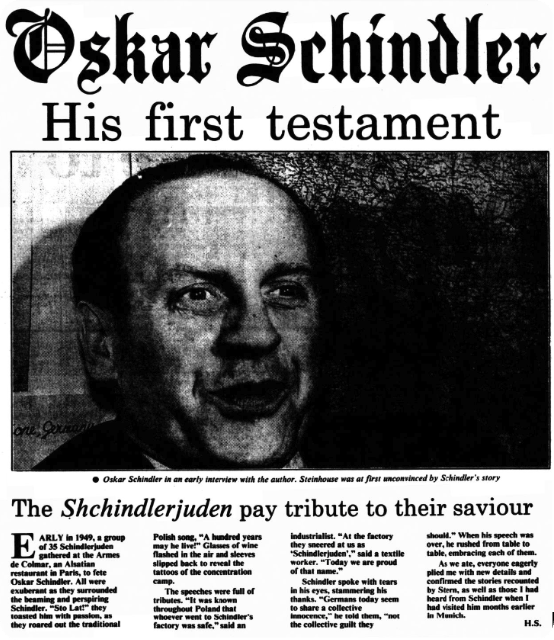
In 1948, Canadian journalist Herbert Steinhouse interviewed Oskar Schindler. This interview was printed in the Irish Independent on 9 April 1994.
At the factory’s peak in 1944, it employed around 1,000 Jews. Schindler used his connections and bribes to keep his workers safe. At first, he hired Jews because they were cheaper to pay, but as time went on and more Jews were under threat of being sent to concentration camps, he shielded his workers with less regard for cost. He insisted that his Jewish employees were vital to the war effort.
Herbert Steinhouse described Schindler's contribution:
"Schindler's exceptional deeds stemmed from just that elementary sense of decency and humanity that our sophisticated age seldom sincerely believes in. A repentant opportunist saw the light and rebelled against the sadism and vile criminality all around him."
In July 1944, Schindler learned that all factories not directly involved in the war effort would be closed, and its Jewish employees sent to Auschwitz or Gross-Rosen. He convinced the Nazis to let him relocate his factory to Brünnlitz and take his employees with him. A list of employees, which included 1,200 Jews, was created. Amazingly, these people were spared the death camps.
The true story behind Saving Private Ryan
This 1998 epic war film, directed by Steven Spielberg and starring Tom Hanks, is set in Normandy in 1944. It follows a group of soldiers trying to track down Private James Francis Ryan, so he can be brought home safely after the deaths of his three brothers. The film was inspired by the harrowing true stories of families who lost multiple brothers in the war.
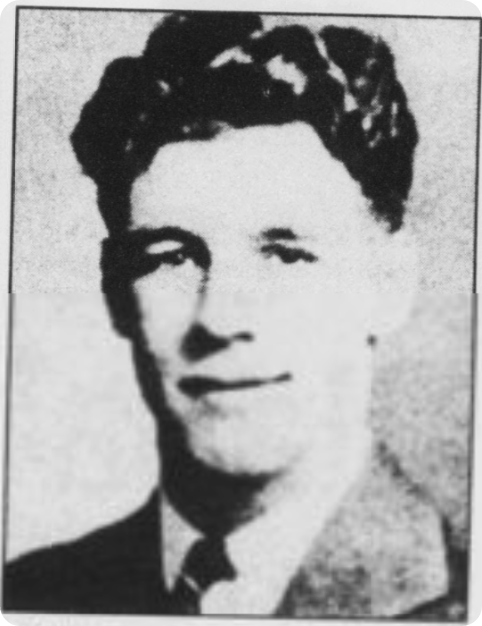
Sergeant Frederick William ‘Fritz’ Niland of H Company, 501st Parachute Regiment, 101st Airborne Division, pictured in the Daily Express, 24 August 1998.
One such family were the four Niland brothers - Fritz, Edward, Robert and Preston - who all served in World War 2.
Frederick ‘Fritz’ Niland reportedly found himself trapped behind enemy lines in France. Because three of his brothers were presumed dead, a rescue operation was undertaken to save the last brother and send him home - so not all the brothers from this one family would be lost to the war.
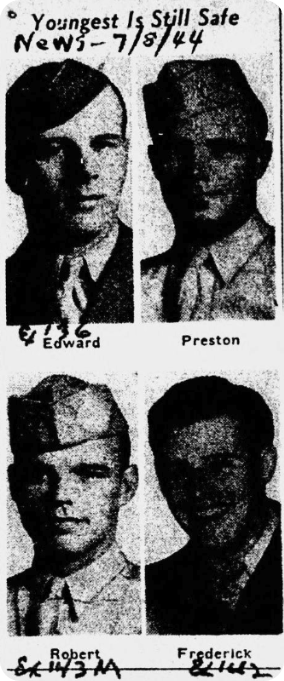
How a local paper reported the story in 1944, reprinted in The People, 13 September 1998.
It was discovered later that Edward was a Japanese prisoner of war in Burma and was still alive. Much to the delight of his family, he was liberated on 4 May 1945.
Edward's brother Robert was killed in action on 6 June 1944. Preston was killed just a day later – both brothers perished in Normandy during the D-Day Landings.

Preston’s death was reported in the US casualty lists in 1944.
Such stories remind us of the catastrophic effect of warfare on families, with brothers upon brothers dying in service of their countries.
The true story behind Dunkirk
This 2017 Christopher Nolan historical epic featured an ensemble cast of stars, including Tom Hardy, Cillian Murphy, Mark Rylance, Harry Styles, and Barry Keoghan. It’s a cinematic portrayal of the evacuation of around 338,000 Allied soldiers from Dunkirk in late May and early June 1940.
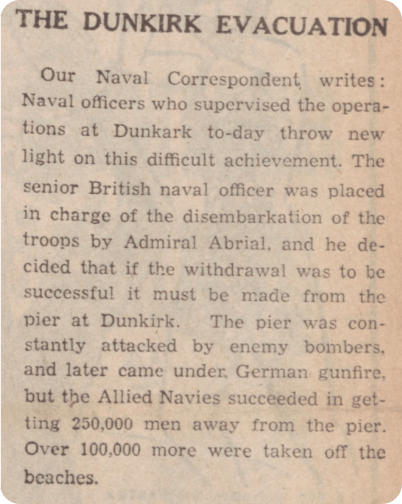
A contemporary account of the evacuation, published in the Edinburgh Evening News, 7 June 1940.
After a large number of Allied troops were surrounded by German forces during the Battle of France, it was decided evacuating them across the Channel to England was the best course of action. They used Dunkirk – the closest viable port – and the mission was codenamed Operation Dynamo.
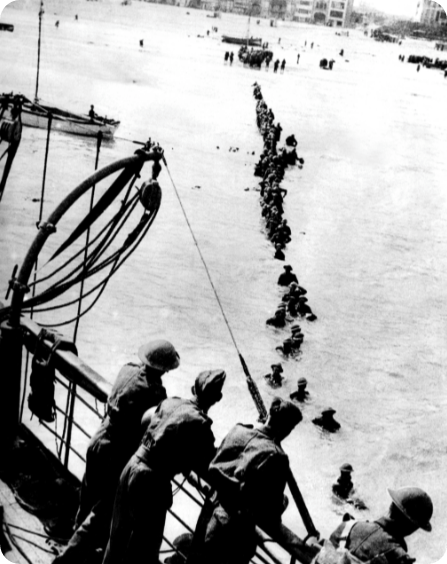
Members of the British Expeditionary Force being evacuated from the beaches of Dunkirk, the Findmypast Photo Collection.
British and French troops waited patiently on the beaches to be evacuated, all the while in fear of being attacked by a low-flying German aircraft. An emergency call was made to small boats to assist and some 400 vessels joined in the effort.
No story left behind
Findmypast is on a mission to ensure that every story gets remembered. Whatever your ancestor's war experience looked like, together, we can ensure that their sacrifices are remembered.


